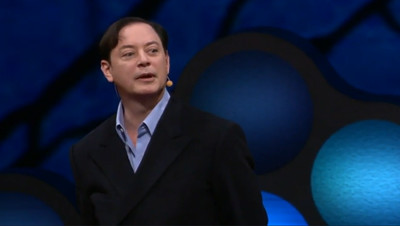Even in purely non-religious terms,
就算拋開宗教信仰的因素,
homosexuality represents a misuse of the sexual faculty.
同性戀也是性濫交的代名詞。
It is a pathetic little second-rate substitute for reality a pitiable flight from life.
它是可悲的,次等的,一種現實的替代品,是人生中一段令人遺憾的旅程。
As such, it deserves no compassion,
因此,同性戀不值得同情,
it deserves no treatment as minority martyrdom,
也不值得治療,因為只有少數人為此受難,
and it deserves not to be deemed anything but a pernicious sickness.
同性戀只值得視為一種有害的疾病。
That's from Time magazine in 1966, when I was three years old.
上述的話選自1966年發行的《時代》雜志,那時我只有三歲。
And last year, the president of the United States came out in favor of gay marriage.
但是就在去年,美國總統站出來表示支持同性戀婚姻。
And my question is, how did we get from there to here?
我的問題是,我們是如何實現這種態度的轉變?
How did an illness become an identity?
曾經的疾病是如何成為現在的一種身份認同?
When I was perhaps six years old,
當我差不多六歲的時候,
I went to a shoe store with my mother and my brother.
我和媽媽還有弟弟去一家鞋店。
And at the end of buying our shoes,
最后,當我們付款買鞋子的時候,
the salesman said to us that we could each have a balloon to take home.
售貨員告訴我們,我們每個人可以挑選一個氣球帶回家。
My brother wanted a red balloon, and I wanted a pink balloon.
我的弟弟想要一個紅色的氣球,我想要粉色的氣球。
My mother said that she thought I'd really rather have a blue balloon.
而我的母親說她覺得我應該選一個藍色的氣球。
But I said that I definitely wanted the pink one.
但是我說我想要的毫無疑問是粉色的氣球。
And she reminded me that my favorite color was blue.
她提醒我,我最喜歡的顏色是藍色。
The fact that my favorite color now is blue, but I'm still gay is evidence of both my mother's influence and its limits.
其結果是,我現在最喜歡的顏色是藍色,但我依舊是個同性戀者,這既反應了母親對孩子的影響,也反應了這其中的局限性。












